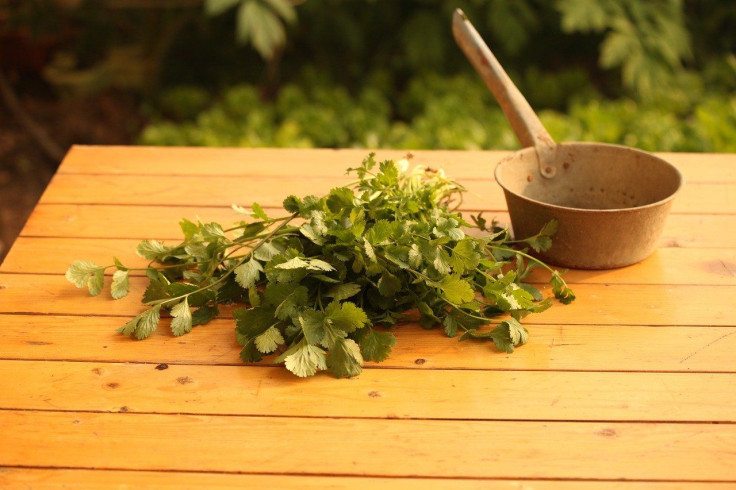International I Hate Coriander Day 2021: Why Do Some People Hate The Herb?
KEY POINTS
- There's a holiday for people who dislike coriander
- For some people, the herb tastes like soap
- There's actually a scientific reason why some people hate it
Feb. 24 marks I Hate Coriander Day, a time for people who thoroughly dislike the herb to come together. If you find yourself cringing at the sight of coriander on your meal, this holiday may just be for you.
There will always be people who dislike foods that other people love. In the case of coriander, or what some may know as cilantro, some people hate it so much that there's an international day for those who detest it. Although for people who truly dislike coriander, that day can be every day.
To be clear, coriander and cilantro may be the same thing depending on where one lives, Healthline explained. For instance, people in North America may know the leaves and stalk of the plant as cilantro and the seeds as coriander. In other places in the world, the names get simplified to coriander and coriander seeds.
No matter what one calls it, however, some people may love it while others absolutely hate it.
But how did the odd holiday for hating coriander even begin? According to Days of the Year (DOTY), it all started with a Facebook group called I Hate Coriander. As the name suggests, itis composed of people who simply hate the herb. The group shares memes, jokes or even tattoos about their hatred for coriander.
See posts, photos and more on Facebook.
To date, the group already has over 280,000 members and even its own merchandise, including shirts that say "Coriander Ruined My Meal."
In fact, the group is so straight-forward about its mission that the "About Us" page on its website simply expresses its hatred of the herb.
"We absolutely hate Coriander and are committed to ridding the world of this horrible herb," the page says.
Why do some people really hate coriander? The common comment from people who truly hate coriander is that it tastes like soap, and there's actually a scientific reason behind it.
Hatred Of Coriander May Be Genetic
As Britannica explained, some people have a variation in their olfactory-receptor genes that make them perceive the soap-tasting aldehydes in the leaves. Because of this, they primarily taste the soapy flavor instead of the herby flavor that other people taste.
"Sense of smell is highly variable between people, so what I experience may not be what you experience, and this can be due to quantity, type and natural variations with smell receptors," Professor Russel Keast of Deakin University explained. Keast specializes in sensory and food science at the university.
Only a small portion of the population has the genetic variation, Britannica noted, although the population of coriander-haters may be larger in some places than others. For instance, fewer people have the cilantro-averting genetic quirk in places where the herb is quite popular, such as in India and Central America.
Lack Of Exposure
Another possible reason behind the hatred for coriander is that it's simply not a flavor one is familiar with, Deakin University explained. People who haven't really been exposed to it a lot may understandably find the flavor quite surprising when they first eat it.
If this is why someone hates coriander, then there may be a chance that they may still grow to like, or at least not hate it, eventually. But according to Prof. Keast, gradually being accustomed to a flavor would be effective if that's the only reason for one's dislike of a food item. But if there's a genetic component to one's dislike, then it would be quite difficult for someone to end up liking it even after being exposed several times.
Is It Possible To Still Like Coriander?
It may surprise people who hate coriander, but the answer is yes. According to Cleveland Clinic, it's still possible for a coriander hater to learn to appreciate it eventually, whether by removing the soapy taste by crushing it or through positive experiences.
For instance, Cleveland Clinic noted, having pleasant meals with friends or family, even if there's coriander in the food, may eventually change one's perspective.
Although it's less likely in people who have the genetic variant, Deakin University said, pairing coriander with other foods that one likes may help improve one's perception of the polarizing herb.

© Copyright IBTimes 2024. All rights reserved.






















